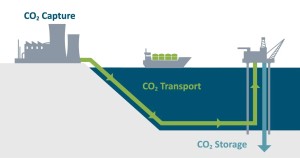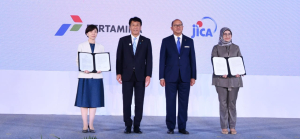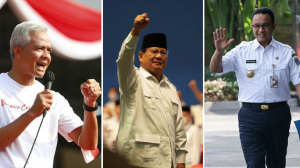Indonesia makes significant progress in CCS technology: Researcher
Indonesia is making significant progress in Carbon Capture and Storage (CCS) technology, with the potential to reduce national carbon emissions by 700 million tons annually, a researcher says.
Ngurah Beni Setiawan, Board Member of the Indonesian Association of Petroleum Engineers (IATMI), Research Division, emphasized that CCS is not merely a technology but a multidisciplinary approach involving engineering, economics, and policy-making.
“We are not switching energy sources abruptly, we are transitioning gradually. This transition requires strategic planning, as well as technological and regulatory preparedness,” Setiawan said in a speech at Indonesia CCS Youth event at the University of Indonesia in Depok, West Java, on Thursday, March 6, 2025.
Indonesia has an estimated underground storage capacity of 600 gigatons, which could play a crucial role in global emission reduction efforts. However, Setiawan highlighted that challenges remain, particularly in cost efficiency and scalability.
“The cost of CCS implementation currently ranges between US$45 and $150 per ton of CO2, which is a significant investment,” he cited.
He pointed out that Indonesia is ahead of other ASEAN nations in CCS development, with 15 projects currently underway.
“Acceleration is key. The winner is not the one who starts first, but the one who can sustain momentum and innovate rapidly,” he said.
Moreover, he underscored the importance of talent development in CCS, urging students and professionals from various disciplines to engage in the field.
“CCS is an integrated challenge that requires expertise from geosciences, engineering, and even social sciences. We must ensure that our workforce remains relevant and equipped to tackle this issue for the next 30 to 40 years,” Setiawan noted.
Indonesia’s CCS initiatives align with its goal of achieving net-zero emissions by 2060. As regulatory frameworks and industry collaboration continue to evolve, experts believe that the country has the potential to become a regional leader in carbon management technologies.
Setiawan concluded his address with a call to action: “Our emissions problem is real, but so is our solution. The challenge now is how effectively we can implement CCS and integrate it into Indonesia’s broader energy strategy.”
Tag
Already have an account? Sign In
-
Start reading
Freemium
-
Monthly Subscription
20% OFF$29.75
$37.19/MonthCancel anytime
This offer is open to all new subscribers!
Subscribe now -
Yearly Subscription
33% OFF$228.13
$340.5/YearCancel anytime
This offer is open to all new subscribers!
Subscribe now







